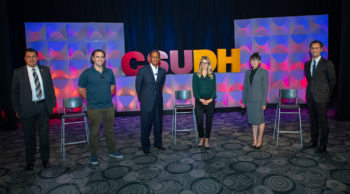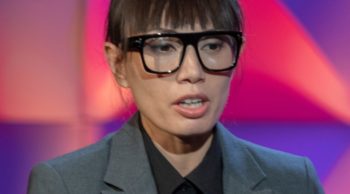Riffling through dusty files in an old shed behind a courthouse in Chadron, Nebraska, External Master's in Humanities academic coordinator Matthew Luckett scanned ledgers and criminal case files that had not been touched in decades. He was looking for horse thieves as part of his research for his book "Never Caught Twice: Horse Stealing in Western Nebraska, 1850-1890." The book, published by the University of Nebraska Press, documents the widely misunderstood crime in American mythology of horse stealing, revealing that it was perpetrated by four main Western Plains groups whose crimes inadvertently transformed plains culture and settlement. For some, violence was the solution for ... Read More
Research
Study Finds Megadroughts and Humans Caused Extinction of Giant Species on Madagascar
Ashish Sinha, a professor of earth sciences at CSUDH, has co-authored a recent research study which found that while droughts on the island of Madagascar contributed to the extinction of such giant species the Dodo bird, gorilla-sized lemurs, and the Elephant Bird, it may have been humans that ultimately sealed their fate. Published Oct. 16 in Science Advances, the study shows that the crash of megafauna (large or giant animals, especially of a given region) that happened around 1,500 years ago took place after a couple of centuries of human settlement. This heightened human activity, in combination with a particularly severe spell of region-wide drought, may have doomed the large birds ... Read More
Faculty Researchers Provide In-Depth Analysis of Fake News
Researchers at California State University, Dominguez Hills (CSUDH) have released the results of a study that provides an in-depth understanding of who produces and spreads “fake news,” and who is duped by it. The findings are part of a larger study on the psychological constructs associated with fake news consumers and producers. Developed in CSUDH's George Marsh Applied Cognition Laboratory by Professor of Psychology Mark Carrier, Professor of Communications Nancy A. Cheever, and students from the lab, data from the 14-month study was collected from an anonymous online questionnaire conducted from December 2018 to February 2020. The study's 2,283 participants lived in college ... Read More
CSUDH’s South Bay Economics Institute Predicts Rebound by Mid-2021
While the South Bay and Los Angeles economies have taken massive hits since the onset of the pandemic in the U.S., researchers in the South Bay Economics Institute expect Gross Domestic Product (GDP) to reach pre-COVID-19 levels by mid-2021, and employment to follow suit the following year. This was one of the many economic projections presented in the 2020 South Bay Economic Forecast report, which California State University, Dominguez Hills (CSUDH) released on Oct. 1 as part of its South Bay Economic Forecast conference. The sixth annual conference was titled “Adopting to Change: Surviving and Thriving During Disruption,” and hosted on campus for a virtual audience of guests ... Read More
LB Business Journal: Strong Tech Sector, Infrastructure Investments will Aid South Bay Economic Recovery
Source: Long Beach Business Journal In many ways, Cal State Dominguez Hills' 2020 South Bay Economic Forecast and Industry Outlook paints as grim a picture as any economic analysis of the current situation. Significant job losses, racial inequity among those suffering the harshest impacts of the economic slowdown–Los Angeles County, and by extension the South Bay, have been hit hard. But there are glimmers of hope that have led the university's economic expert to feel more confident in the region's economic future than the projected 15.6% year-over-year increase in unemployment for the second quarter might suggest. The tech industry, one of the largest employers in the region, has ... Read More




